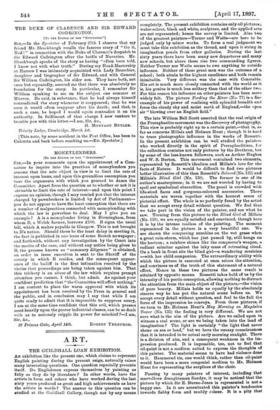MONEYLENDERS.
[TO THE EDITOR OF TUE " SPECTATOR."
SIR,—In your comments upon the appointment of a Com- mittee to inquire into the practices of moneylenders you assume that the sole object in view is to limit the rate of interest upon loans, and upon this groundless assumption you base the arguments with which you proceed to damn the Committee. Apart from the question as to whether or not it is advisable to limit the rate of interest—and upon this point I express no opinion, though I may remind you that the interest charged by pawnbrokers is limited by Act of Parliament— you do not appear to have the least conception that there are a number of malpractices connected with moneylending with which the law is powerless to deal. May I give you an example ? A is a moneylender living in Birmingham, from whom B, a Welsh farmer, borrows £100. B signs the usual bill, which A makes payable in Glasgow. This is not brought to B's notice. Should there be the least delay in meeting it, the fact is published in one issue of some Scotch newspaper ; and forthwith, without any investigation by the Court into the merits of the case, and without any notice being given to B, the process known as " summary diligence " is obtained, an order to issue execution is sent to the Sheriff of the county in which B resides, and the consequent appear- ance of the bailiff is the first intimation received by the victim that proceedings are being taken against him. That this trickery is an abuse of the law which requires prompt attention you cannot, I think, but admit. As against your confident prediction that " the Committee will effect nothing," I am content to place the warm approval with which its appointment has been received by the Press in general and the public, and in conclusion may I say that while I am quite ready to admit that it is impossible to suppress usury, I am at the same time confident that this evil, which presses most heavily upon the poorer industrial classes, can be so dealt with as to seriously cripple its power for mischief P—I am, Sir, Sze.,


































 Previous page
Previous page